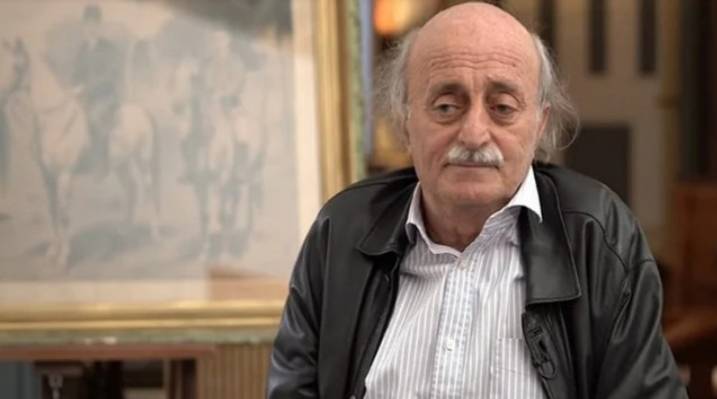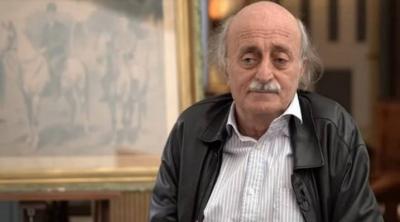The head of the Progressive Socialist Party, Walid Jumblatt, stated that he does not oppose holding a cabinet session to address citizens' affairs. However, he simultaneously warns that "the electricity problem seems intractable due to corruption, waste, and evasion of the necessary reforms, alongside external factors that have not yet been resolved."
In an interview with "Al-Jumhuriah," he noted that the import of gas from Egypt and electricity from Jordan is still problematic. "Meanwhile, the intervention of one of the embassies has not succeeded in overcoming the existing obstacles." Jumblatt pointed out that Egyptian gas has not yet arrived because Egypt does not want to face sanctions that would result from the gas passing through Syria. As for Jordanian electricity, it could arrive, but it is contingent upon reforming the electricity sector according to the conditions of the World Bank, particularly regarding the formation of a regulatory authority, which, as he believes, will not see the light of day because there are those who do not benefit from its establishment.
Jumblatt considered that this reality means that any money spent in the electricity sector is merely being funneled into a bottomless pit, leading to waste. He opposed any request from the Minister of Energy to spend money for the benefit of the electricity company, "which experiences significant waste," and called for reforming the sector before any funding is allocated to it.
He expressed concern that "the most dangerous thing is that some within the state have trapped us in a penalty trap," referring to the issue of fuel ships that are stranded at sea, which has been an ongoing problem for decades. "Since decades ago, ships have come and waited while the state is paying hefty fines that end up in the pockets of brokers in the Ministry of Energy and elsewhere."
Jumblatt clarified that these beneficiaries, who falsely claim to represent the Algerian company "Sonatrach," have been altering the quality of cargo in the Mediterranean by adding burned oil, explaining the black smoke emitted from the Jiyyeh and Zouk power plants. "It’s the same gang, but its generations change, and the patterns of deceit vary."
Beyond the electricity file, Jumblatt emphasized the importance of holding a second session for the caretaker government to address vital issues, including education, highlighting the disruption of schooling in public schools during morning and afternoon shifts. He deemed it essential to approve special funding for schools, stressing that "it is more important and beneficial to invest in education rather than pay fines to fictional companies and brokers in the electricity sector."
On another note related to the political arena, Jumblatt was critical of the call made by the head of the Lebanese Forces party, Samir Geagea, during a television interview to "reconsider the entire Lebanese structure politically and the state’s composition if Hezbollah manages to bring in a president it wants."
Jumblatt questioned, "What does Geagea mean by reconsidering the Lebanese structure? Is this a suitable time to delve into structural adjustments while the country is collapsing?" He added, "It is necessary to complete the implementation of the Taif Agreement before Mr. Geagea or anyone else proposes such a proposal."




